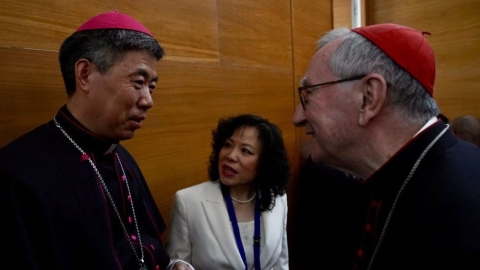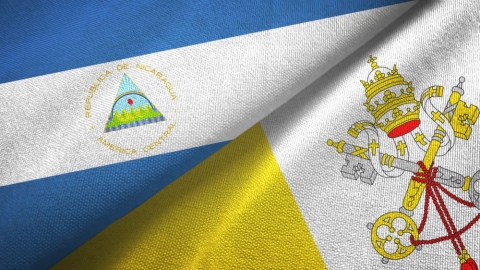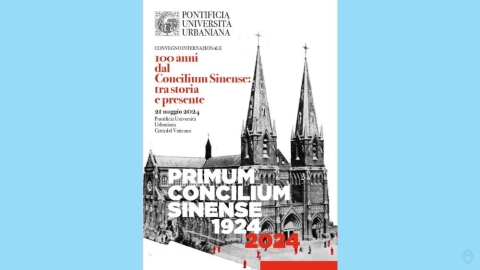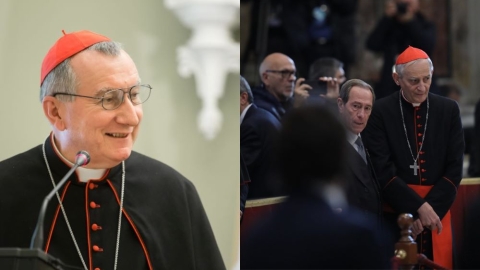The Head of the DDF Warns Traditionalists and Progressives Back to Back

For the new prefect of the Dicastery for the Doctrine of the Faith (DDF), the traditionalist and progressive groups “who think they have a ‘special gift of the Holy Spirit to judge the doctrine of the Holy Father’ are on a road to ‘heresy’ and ‘schism.’”
In certain aspects, the interview given to the National Catholic Register on September 8, 2023 by Cardinal-designate Archbishop Victor Manuel Fernandez, who is due to receive the red hat on September 30, resembles a settling of scores. Annoyed by the criticism, the prelate chose a conservative Catholic media outlet to make himself heard in a sector of the Church in which he is strongly criticized.
Taking advantage of a question on the acceptance of the current pontifical magisterium, the new prefect of the DDF took the opportunity to respond to one of his opponents: “I do not have this charism [to judge the doctrine], nor do you, nor does Cardinal [Raymond] Burke,” declares Fernandez who targets one of his main adversaries.
The future cardinal continues: “If you tell me that some bishops have a special gift of the Holy Spirit to judge the doctrine of the Holy Father, we will enter into a vicious circle (where anyone can claim to have the true doctrine) and that would be heresy and schism. Remember that heretics always think they know the true doctrine of the Church. Unfortunately, today, not only do some progressives fall into this error but also, paradoxically, do some traditionalist groups.”
Responding to an alleged “lack of clarity” in the teaching of the Faith “especially since the Second Vatican Council” mentioned by the Register, the new prefect justifies himself by equating debate and lack of theological clarity, two very different notions: “Debates (and therefore some lack of clarity) have existed throughout the history of the Church.”
“There were fierce debates among the Fathers of the Church, there were debates among religious orders, and how can we not remember the de auxiliis controversy, where two groups of theologians and bishops condemned each other [over the relationship between divine grace and free will] until the pope decided it was an open question and forbade them expressing themselves in condemnatory terms?”
The prelate sees his new mission as less focused than before on the protection of the doctrine of faith and morals, but rather on an exchange of ideas: “I believe that this dicastery can be a space that can welcome these debates and frame in the secure doctrine of the Church, thus avoiding for the faithful some of the more aggressive, confusing and even scandalous media debates.”
Asked about the ideas of the German Synodal Path, according to its recent declarations on the blessing of same-sex couples, Msgr. Fernandez had difficulty extricating himself from his ambiguities: “At this point, it is clear that the Church only understands marriage as an indissoluble union between a man and a woman who, in their differences, are naturally open to beget life.” A response which does not close the door to future developments in this area.
But for the future cardinal, there is no question of being assimilated to the progressives across the Rhine: “I don’t know why some of your colleagues identify me with the German way, which I still know little about.” He touts his most famous book “which contains a daily meditation on the Holy Spirit” and has sold 150,000 copies.
He recalls that he was “parish priest, and also a diocesan bishop” and praises his record: “Eucharistic adoration, catechism courses, Bible courses, home missions with Our Lady and a prayer to bless the home. I had 10 prayer groups and 130 young people.” It is an answer that contains everything except a link to the question.
“Like the Pope, I believe that without mysticism, we will go nowhere,” concludes the man who will soon receive the cardinal hat from the hands of his mentor. The question is simply to know what mysticism he is talking about.
(Sources : National Catholic Register/Catholic News Agency – FSSPX.Actualités)
Illustration : Dirección de Relaciones Institucionales de la Universidad Católica Argentina, CC BY-SA 3.0, via Wikimedia Commons





